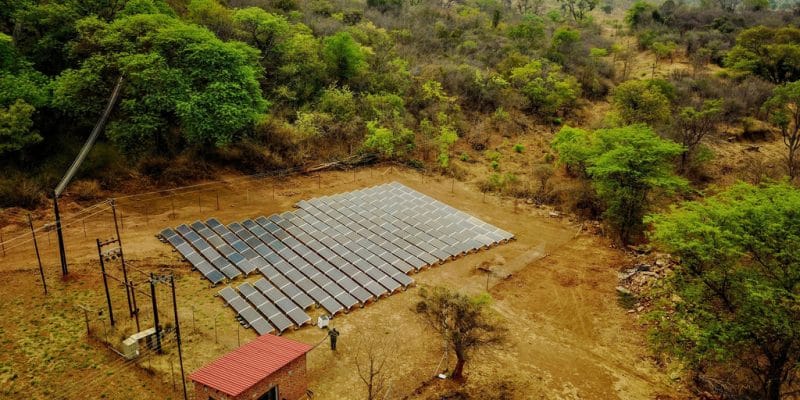Kountoum, a small town in northwestern Togo, has just acquired a 100 kW solar park. Its construction required an investment of 320 million CFA francs, or nearly 488,000 euros. The plant will provide electricity to hundreds of households.
The Kountoum Village is located in the Kara region of north-western Togo. Its peaceful population is active in agriculture and livestock during the day. At night, everyone manages with a lamp that runs on kerosene to light up. However, slowly but surely, the inhabitants are giving up their old habits because now, electricity has been installed in the village and, from a single light bulb, a whole room is lit in the houses.
Most importantly, the energy is produced by solar panels, which capture the sun’s rays, often very sharp in this region, and transform them into energy. The main impact on the people of Kountoum, however, was to see the president of the Republic, Faure Gnassingbé, come to their homes to cut the symbolic ribbon, marking the commissioning of the new solar park, which supplies the village.
Energy for several hundred homes
The power plant produces 100 kW. Some of this energy is stored in batteries. Thus, at night, the Kountoum populations continue to have access to this clean energy. It is transported to about 100 homes via a 3 km long low-voltage line. With the arrival of this green energy, the village acquired, at the same time, street lamps that light up some corners in the dark night. Total cost of this infrastructure, 320 million CFA francs, or nearly 488,000 euros.
Kountoum is not the first village to have access to electricity. Solar parks have been built in three other villages: in Ogou, Assoukoko in Blitta department (central Togo) and Takpapiéni in South Oti division. In all, the four installations required a total investment of CFAF 2 billion (more than €3 million). These successive projects are part of the Regional Programme for the Development of Renewable Energy and Energy Efficiency (Prodere). It is an initiative launched and funded by the West African Economic and Monetary Union (Uemoa) Commission. Its objective is to “substantially reduce the energy deficit in the member countries (Burkina Faso, Ivory Coast, Mali, Niger, Senegal, Togo and Benin), through the development of renewable energies”. The implementation of this programme involves a contract with private electricity producers (IPPs) in order to facilitate the financing of projects.
Jean Marie Takouleu






